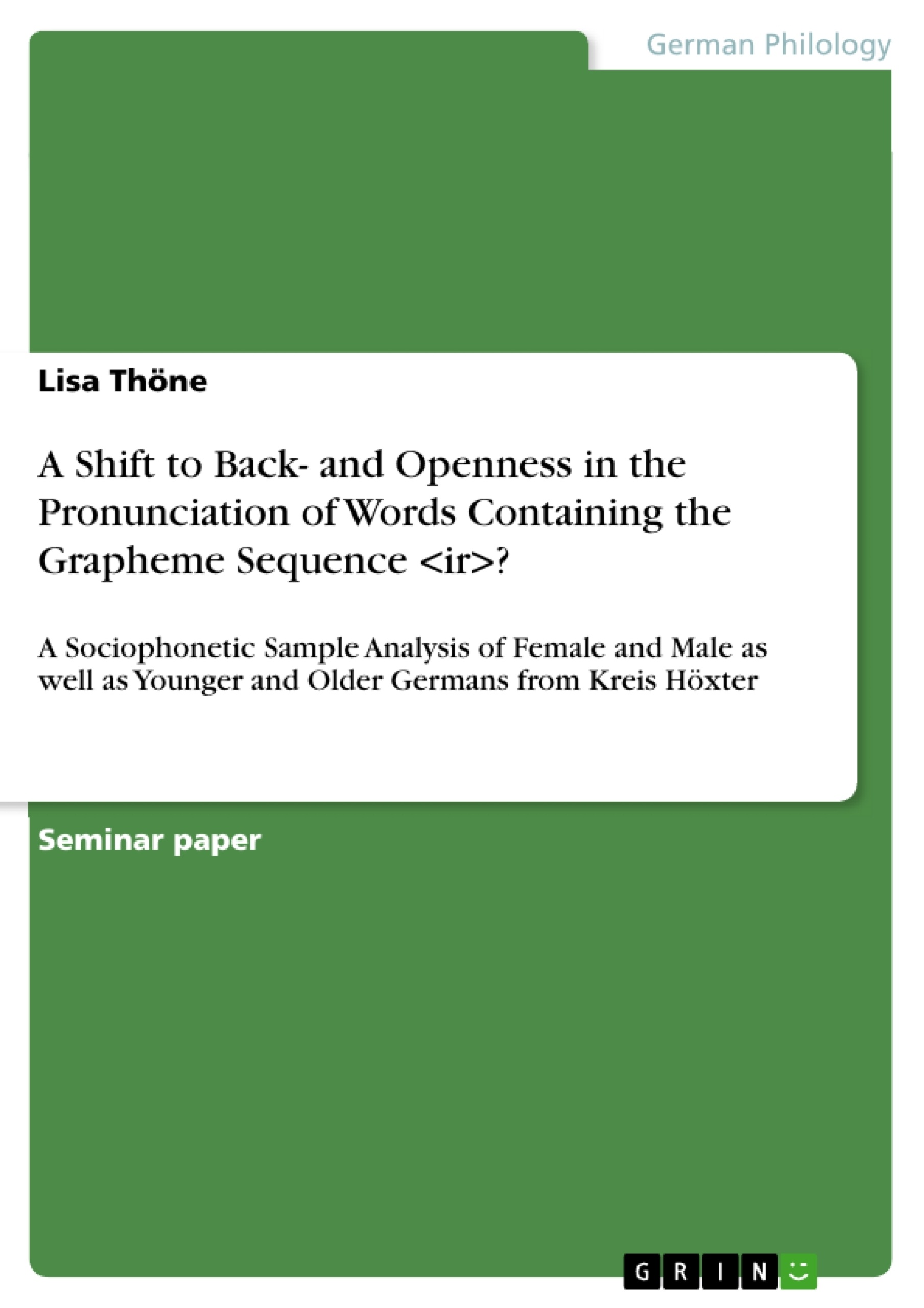This paper fills a gap in sociophonetic research by examining the pronunciation of <ir> in Kreis Höxter, Germany. The paper investigates whether speakers demonstrate a shift to more back and open sounds.
As sociolinguistics as a systematic research field developed no longer than in the mid twentieth century, many sociolinguistic phenomena remain unexplained yet or are not studied to a wide extent. This is also the case for the sociophonetic research topic of this paper. It is generally known, although not systematically proven, that in Northern Germany, many speakers articulate more back and open sounds compared to Standard German when they pronounce words containing the grapheme sequence <ir>. This could be exemplified by the word <Hirsch>, which a North-German speaker who inspired this project pronounced with /ɵ/, where the tongue is positioned more back than with /ɪ/. Sometimes, one can also hear an /ø/, where the mouth is more open than with /ɪ/. This applies to younger female speakers who are vocally trained. Likewise, the 37-year-old male speaker from Northern Germany is very well vocally trained as a singer and audiobook/radio play speaker.
Inhaltsverzeichnis (Table of Contents)
- Introduction
- Theoretical Background
- Previous Research and General Concepts
- Working Hypothesis
- Analysis
- Data and Methodology
- Results
- Discussion/Conclusion
- Works Cited
Zielsetzung und Themenschwerpunkte (Objectives and Key Themes)
This research project aims to investigate the pronunciation of words containing the grapheme sequence
- Sociophonetic variation in the pronunciation of
in North German speakers - The influence of Standard German and Low German varieties on pronunciation
- The role of age and gender in language variation
- Systematic analysis of back- and open-ness in the articulation of
in Kreis Höxter - Comparison of individual subject data to identify patterns in vowel articulation
Zusammenfassung der Kapitel (Chapter Summaries)
- Introduction: The chapter provides a general overview of the research topic, highlighting the lack of systematic research on the sociophonetic phenomenon of
pronunciation in North German varieties. It sets the stage for the study by introducing the research question and outlining the methodology used. - Theoretical Background: This chapter delves into previous research on the pronunciation of
and discusses relevant concepts like Standard German, Low German, and allophones of /r/. It also defines the term "glide" and establishes the theoretical foundation for the working hypothesis. - Analysis: The chapter outlines the data and methodology used in the study. It describes the social variables (age and gender) and the linguistic variables (test words) and introduces Table 1, which summarizes the gender and age of the subjects.
Schlüsselwörter (Keywords)
This paper focuses on the sociophonetic analysis of the pronunciation of words containing the grapheme sequence
- Quote paper
- Lisa Thöne (Author), 2022, A Shift to Back- and Openness in the Pronunciation of Words Containing the Grapheme Sequence <ir>?, Munich, GRIN Verlag, https://www.grin.com/document/1475231



